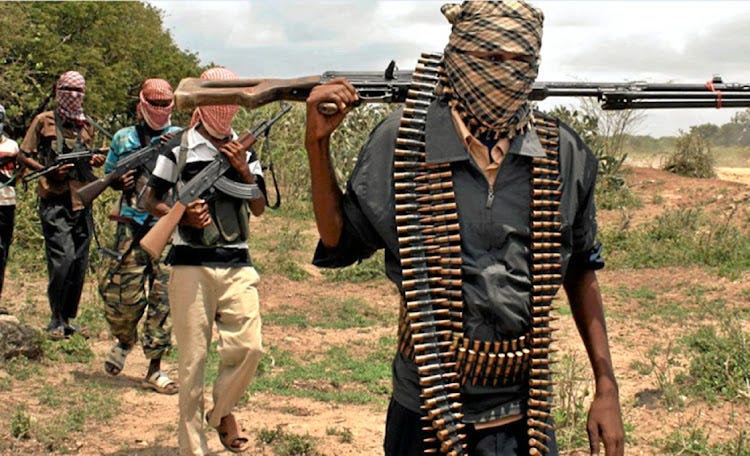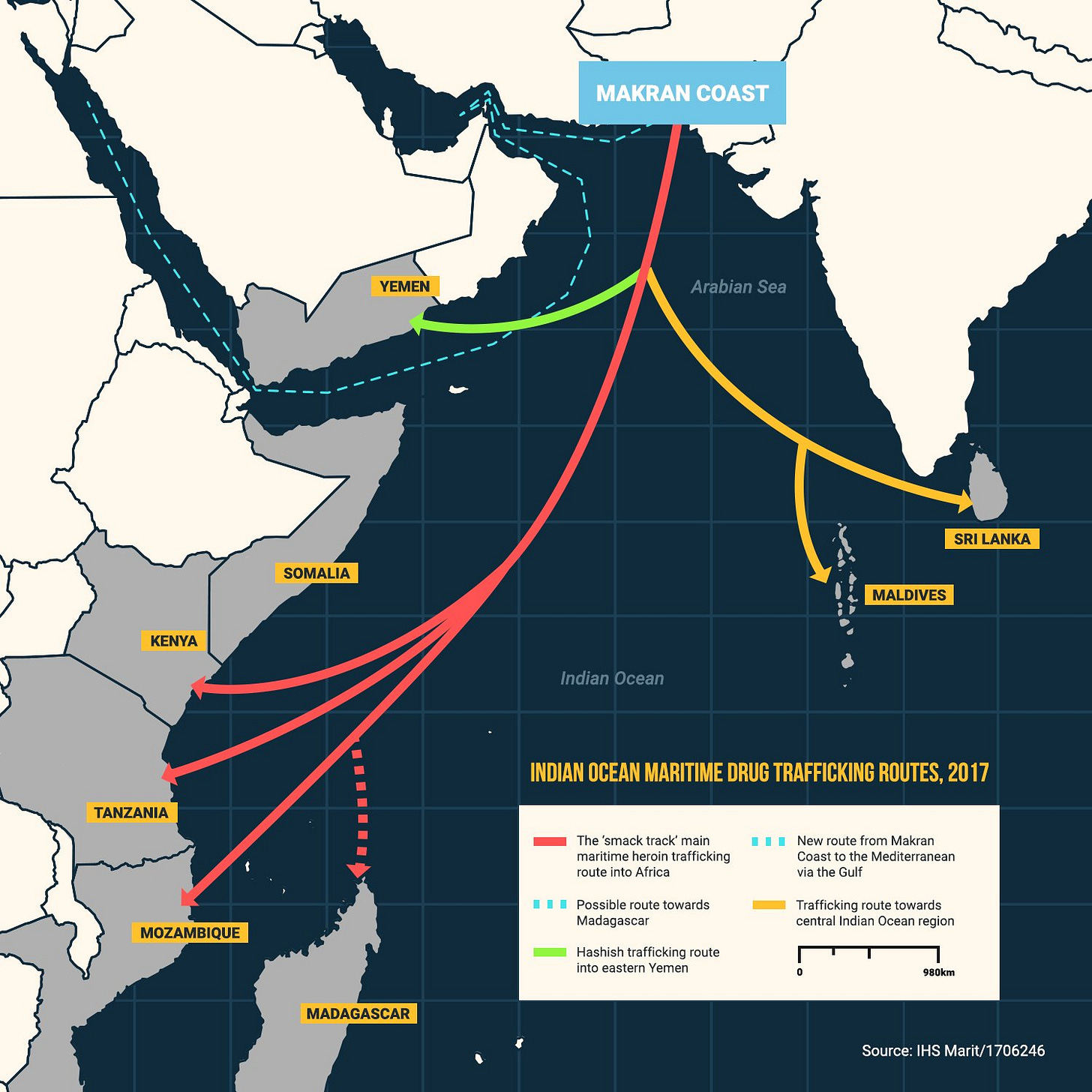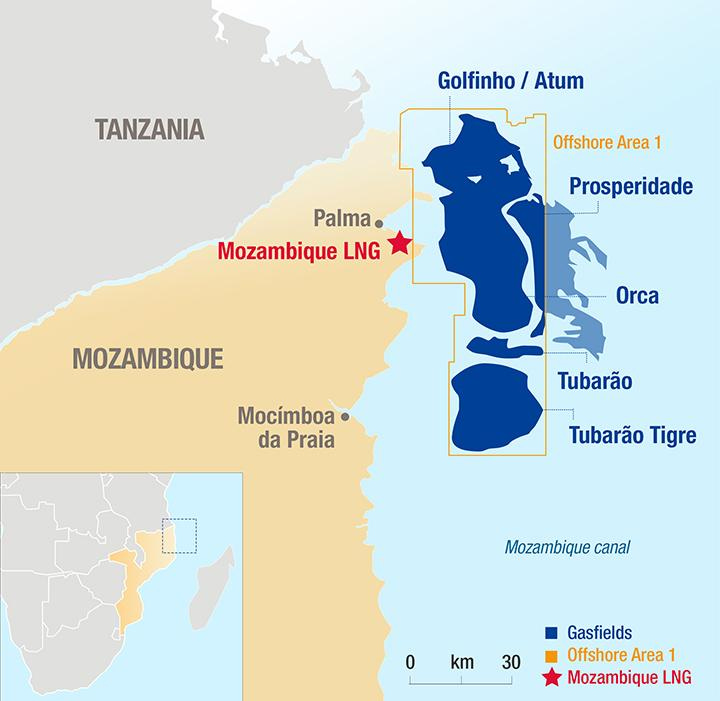Islamic Insurgency, Murder, and Narco Trafficking: The Islamic State Mozambique is Down, but not Out
The Islamic State Mozambique continues to pose a major threat despite Maputo's assurances to the contrary
ISM Militants. Source
On January 21, Islamic State in Mozambique (ISM) militants swarmed into the coastal town of Mucojo in the Macomia district of Mozambique’s northernmost province of Cabo Delgado. Mozambique Defence Armed Forces (FADM) stationed there fled to avoid the onslaught, a devastating blow to a regime that claims to have made significant gains against ISM in recent years. Although the power of the ISM has been greatly reduced by counterinsurgency efforts and shifts in the global narcotics trade in recent years, it remains a potent threat and continues to benefit from Cabo Delgado’s vast unpatrolled coastline. Moreover, with international investment in the region’s vast offshore energy reserves set to resume later this year, this could invite new attacks from a resurgent ISM moving forward.
ISM continues to pose a threat, benefits from coastal access
A map showing major transit routes for Afghan heroin in the late 2010s. The southernmost red arrow points to Mozambique’s Cabo Delgado, where the ISM operates. Source.
The much-lauded counteroffensive led by the Southern African Development Community Mission in Mozambique (SAMIM), which is comprised of Mozambican and Rwandan forces, has regained roughly 90% of the ISM’s formerly held territories over the past two years. The ISM reportedly lost some 1,000 fighters as a result and has been driven into the Catupa forest: the Mozambican military estimates that ISM’s total fighting force has been reduced to just 200 - 250 fighters at present. Last May, Mozambiquan President Filipe Nyusi declared that Cabo Delgado’s security situation had normalized, encouraging investors to return and for offshore energy projects to resume operations. Rwandan President Paul Kagame reinforced this position, claiming that “maybe 80%” of the problem with militants has been addressed. However, the latest attacks indicate that these claims may be premature.
Mozambique’s recent success against the ISM has in part been due to its unorthodox approach. In addition to inviting in the forces of nearby Rwanda to assist in counterinsurgency, the government legalized civilian militias that are primarily comprised of decommissioned soldiers after the defence ministry admitted it was unable to deal with the Islamist threat alone. These forces have been largely effective, having reportedly killed hundreds of ISM combatants since 2020, including leader Bonomade Machude Omar on August 25, 2023. Moreover, Cabo Delgado saw overall violence fall by 71 per cent and civilian deaths fall by 80 per cent in 2023. However, this has not been without controversy with Human Rights Watch accusing these militias of committing murder, rape, and extortion against the civilian population. Despite these apparent setbacks, the ISM has ramped up its operations in the region in recent months.
In addition to the recent assault on Mucojo, the ISM attacked a military outpost near the village of Ngori in December. However, the group has generally avoided engagement with the military, instead opting for soft targets that undermine the credibility of the regime and its purported security gains. For example, a September 15 ISM attack resulted in the killing of 11 Christians in the village of Naquitengu. These incidents demonstrate the threat the ISM continues to pose, in large part due to its access to Cabo Delgado’s lucrative Indian Ocean coastline, which continues to enable its operations.
“The Islamic State gets its funding mainly from illicit trade…they tax traffickers and poachers (operating along the coast)”, said Cesar Guedes-Ferroyos, an international consultant and former representative for the United Nations Office on Drugs and Crime (UNODC) in Mozambique. Although Guedes-Ferroyos notes that ISM has been hit by the dramatic decline in the Afghan heroin trade in recent years (this was once a major revenue stream for the group) the ISM could continue to leverage its access to the coast to take part in the growing trade of South American cocaine and Asian synthetic drugs moving forward. Moreover, he notes that the ISM could gain revenue from the kidnapping, ransoming, and blackmailing foreign personnel and companies engaged in offshore energy operations, as they have done previously. These are among the most likely reasons that Major General Tiago Nampele of the FADM announced that security forces were preparing operations with the intent of cutting off the ISM’s access to the sea. With this operation still underway and the ISM proving itself resurgent in recent months, it is likely too early for the Mozambiquan government to celebrate a victory against the group just yet.
How We Got Here
A map of Cabo Delgardo’s vast offshore gas fields, published by Total. Source
The Islamic State in Mozambique, also referred to locally as al-Shabaab, seeks to overthrow the government of Mozambique in favor of creating a transnational Islamic state. The insurgency started in Cabo Delgado in 2017 and has since spearheaded attacks that have killed more than 3,000 people and displaced some 900,000 others. Accepted as a branch of the larger Islamic state in 2019, the group was initially made up of small bands of heavily equipped fighters who began targeting security personnel and infrastructure. These attacks culminated in the 2021 attack of the coastal town of Palma, which killed some 1,200 people including several foreign workers engaged in offshore energy projects.
“(The rise of the ISM) was a total surprise, not only to Mozambique, but to the world”, said Guedes-Ferroyos. Taken by surprise and lacking the military capability to take on the insurgency itself, the Mozambiquan government initially contracted Russia’s private military company (PMC) Wagner to route insurgent forces in 2019: however, Wagner would leave the country shortly thereafter following heavy losses. Another PMC, South Africa’s Dyck Advisory Group (DAG), was also contracted to provide air cover after the withdrawal of Wagner and aiding in the defense of Pemba from 2019 to 2021, including the retaking of Macomia from ISM in 2021. Amnesty International has accused Dyck of widespread and indiscriminate killings along with other war crimes.
These mercenaries were gradually replaced with the FADM, as well as Rwandan forces and local militias. These forces, along with their cohorts from the SAMIM peacekeeping mission, which includes personnel from Angola, Botswana, the Democratic Republic of Congo, Lesotho, Malawi, South Africa, Tanzania, and Zambia, have contributed greatly to the stability of Cabo Delgado in recent years. However, SAMIM recently began draw down its presence in the region and is expected to withdraw completely from Mozambique in July 2024: this will add further pressure to the FADM and its Rwandan and local cohorts. With IS attacks on the rise, the security situation of the region remains far from clear. Moreover, with foreign investment projects set to recommence, the risks are running high.
A smugglers paradise that has caught the eye of foreign investors
Cabo Delgado is in the extreme north of Mozambique and includes 430 km of coastline along the Indian Ocean. Although it is one of Mozambique’s poorest provinces, it is exceedingly resource-rich and has been described as a “smugglers paradise” due to its lengthy unpatrolled coastline and some 30 islands that facilitate an estimated US $600 million in illicit smuggling each year. Moreover, with an estimated 100 trillion cubic feet of offshore gas reserves discovered in 2010, the province has attracted a US $20 billion investment from French energy giant, Total. Though Total halted its $20 billion extraction project after the Palma attacks of 2021 and has since been hit with lawsuits from the families of foreign workers who fell victim, it has nevertheless stated its intent to move forward with the project in the first quarter of 2024. US energy giant, ExxonMobil has also released a timeline indicating it intends to reach a final decision on future projects in Mozambique by 2025. “They (Total) have too much invested there. I think they will go ahead”, said Guedes-Ferroyos.
Europe's shift away from Russian energy has increased its reliance on liquified natural gas, sending global prices rising and thrusting projects previously deemed to be unviable into the spotlight. However, with the ISM far from defeated in Mozambique, the possibility of new foreign workers arriving could spell disaster moving forward as the group continues to mount attacks in the region.
Conclusion
Security will likely remain a challenge in Cabo Delgado in the coming months as the ISM has proven itself resilient in the face of overwhelming odds. Though limiting ISM access to the coast is seemingly imperative to curbing the group’s ability to finance further attacks, the challenge of achieving this is extraordinary, given the region’s vast coastline and numerous island hideaways. Moreover, the ISM’s recent recapture of the coastal village of Mucojo means that the group is still capable of projecting power onto the coast and is likely continuing to reap the financial benefits of doing so, giving it the means to stage further attacks. In this way, declarations of victory over the ISM by the Mozambiquan government are premature and although investment is set to restart, the security situation will likely remain tense for the foreseeable future.







#Intelligence-par-excellence! by #Preston … “It ain’t over till the fat lady sings!” ~ Rodney Dangerfield